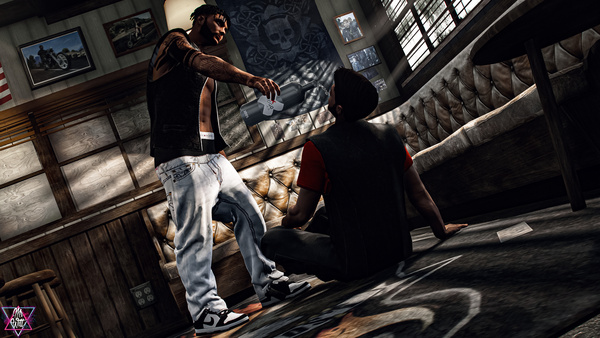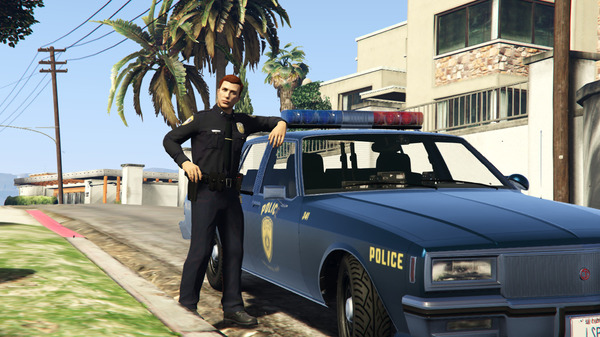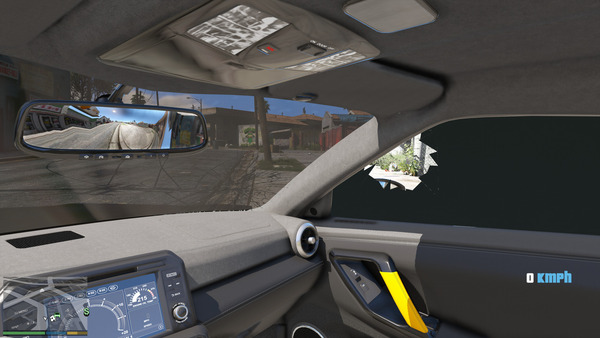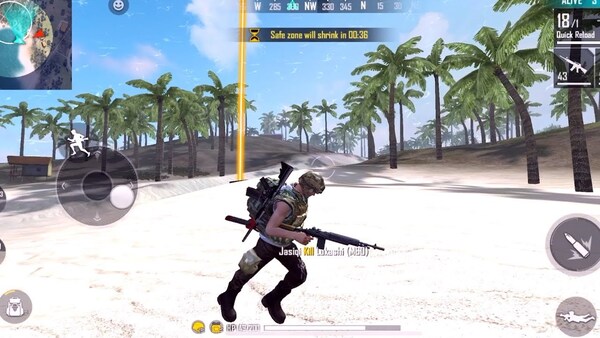Popular Now
Grand Theft Auto V (GTA V) is a sprawling open-world game full of activities, from racing and sightseeing to property management and story-based missions. But beneath the surface lies a vast and complex system that many players immerse themselves in: the underground economy. Far from a simple side activity, GTA V’s criminal enterprises have evolved into a layered, profit-driven empire. In this article, we explore the deep mechanics of GTA V’s underground businesses — how they grow, how they operate, and how Rockstar Games has expanded this system over time, creating an experience that's nearly an entire business simulator within a crime sandbox.
The Birth of Illegal Operations: Introduction through Story Mode
The Heist Blueprint
In the single-player campaign, criminal businesses are first introduced through large-scale heists. Michael, Franklin, and Trevor orchestrate jobs that involve setup missions, crew hiring, and multiple approaches. These story-driven heists serve as the foundation for what later becomes the Online enterprise system.

Underground Culture Starts Here
Before any biker clubs or CEO offices, the seeds of GTA’s underground economy were planted through character arcs. Trevor's meth business, Franklin’s hitman gigs, and Michael's money laundering reflect a simplified economy of risk and reward. This theme would be expanded on in GTA Online, but story mode gave players their first real taste of managing crime for profit.
First Steps in Online Crime: The CEO Office
The Executive Lifestyle
Once players hit a certain level in GTA Online, the ability to become a CEO unlocks. With a purchase of an executive office, players gain access to “SecuroServ,” which transforms their character from a petty criminal to a business magnate. This unlocks access to Vehicle Cargo, Special Cargo, and later, Nightclubs.
Special Cargo Management
One of the first major money-making ventures involves buying and selling Special Cargo. Players purchase warehouses, then fill them with stolen goods in risky solo or team missions. The system rewards patient strategists and punishes recklessness, creating a high-risk, high-reward model that mirrors real-world smuggling logistics.
Vehicle Cargo Operations: Risk with Wheels
Import/Export Dynamics
Vehicle Cargo became a fan-favorite due to its fast-paced missions and excellent profitability. After acquiring a Vehicle Warehouse, CEOs steal high-end cars, store them, and later sell them in high-stakes export missions.
Balancing Inventory and Risk
What makes this system intricate is how players are incentivized to avoid crashing cars and to manage warehouse space efficiently. Selling too many low-value vehicles hurts your inventory, while failing to protect deliveries results in major losses. It’s more than driving fast — it’s logistical planning.
Motorcycle Clubs: Grassroots Crime Expansion
Drug Labs and Gunrunning
MC Businesses are the backbone of low-key criminal enterprises. After purchasing a clubhouse, players can buy and operate drug labs, counterfeit cash facilities, and more. These businesses are semi-passive, producing goods over time that must be manually sold or managed.
Strategic Synergy
Success in MC operations hinges on managing multiple businesses at once. Players who optimize their routes, protect their supplies, and sell at the right times earn the most. It’s a juggling act — and it adds a simulation-style layer to the game.
Bunker Warfare: Gunrunning at Scale
Introducing Bunker Mechanics
Gunrunning changed everything. The Bunker is a massive facility where players manufacture illegal arms. Unlike MC businesses, the Bunker requires a constant flow of resources and personnel, and includes a research track that unlocks powerful equipment.

Passive Yet Active
The beauty of the Bunker is its hybrid nature. While production is passive, players can improve efficiency, assign staff, and choose between manufacturing and research. This system forces players to think like crime bosses rather than simple shooters.
The Nightclub Revolution: A Hub of Dirty Money
One Central Business
The Nightclub is the most complex and powerful enterprise in GTA Online. Unlike other businesses, it combines multiple existing operations into one central money-laundering hub. Players can assign technicians to source goods from existing businesses like the Bunker and MC Labs, creating a fully integrated profit system.
Popularity and Passive Income
Maintaining nightclub popularity allows for secondary income through club attendance. Players must also manage logistics, hire DJs, and engage in marketing — all while handling illicit activities behind the scenes. It's Rockstar’s most refined take on the duality of crime and legitimacy.
Arcade Ownership: Heist Headquarters
Beyond Just Mini-Games
Arcades might seem like casual diversions, but they are crucial to the Diamond Casino Heist. After buying an arcade, players can plan heists, scope out access points, hire crew, and more. This is where business management meets mission planning.
Setup, Scope, and Strategy
Every aspect of the heist must be carefully planned from within the arcade. Equipment, getaway cars, entry points — all require resource allocation and decision-making. Players who treat the arcade like an operations center benefit from smoother heists and bigger payouts.
Auto Shop Business: The Urban Mechanic Empire
Fixing and Flipping
Introduced in the Los Santos Tuners update, Auto Shops allow players to repair and sell cars for clients. While not as lucrative as other ventures, it adds flavor and customization depth to the crime economy.

Contracts and Missions
Auto Shops come with contract missions — small heists with specific objectives. These short, replayable tasks are perfect for solo or duo players and provide decent returns with minimal overhead.
The Acid Lab: Psychedelic Profits
From Drip-Feed to Full Function
Initially introduced as part of a limited-time update, the Acid Lab became a permanent business. Set in a mobile lab (a customized Brickade 6x6), it produces psychedelic goods that players can deliver in missions.
Mobility and Danger
The Acid Lab introduces new tactical gameplay. Because it's mobile, it can be stashed or moved easily, but delivery missions are high-risk and attract enemies. It's an evolution of the MC model with more interactivity and danger.
Business Synergy: The Master Criminal's Blueprint
Interconnecting Every Enterprise
Rockstar intentionally designed businesses to work together. Nightclubs pull from Bunkers and MC Labs. Arcades lead to heists. Warehouses support large payouts. Success means integrating everything — no single business is enough on its own.
Tips for Mastery
-
Always source and resupply in public lobbies with friends for bonuses
-
Invest in staff and equipment upgrades early
-
Rotate businesses to avoid burnout and maximize profits
-
Use the Terrorbyte to source missions faster
Understanding how businesses interact is the key to dominating GTA Online’s criminal world. It's no longer just about one operation — it's about building an empire.

Conclusion
The criminal enterprises in GTA V, particularly in GTA Online, represent one of the most sophisticated systems ever developed in an open-world game. From simple cargo runs to multi-layered nightclub logistics and Bunker management, Rockstar has transformed a crime sandbox into a full-fledged business simulation. Every decision — from vehicle exports to MC production cycles — carries real consequences, making the underground economy not just a money-maker but a core gameplay pillar. Mastering it requires planning, strategy, and the willingness to take risks — just like in the real underworld.


















